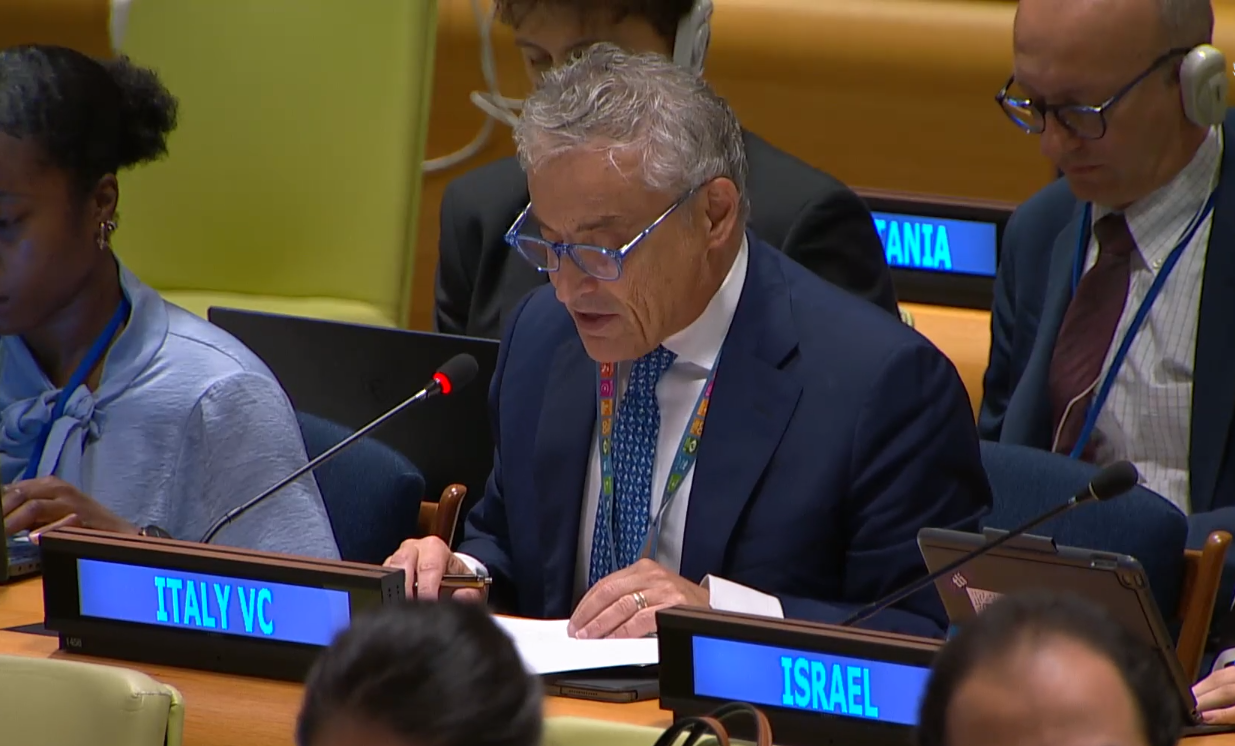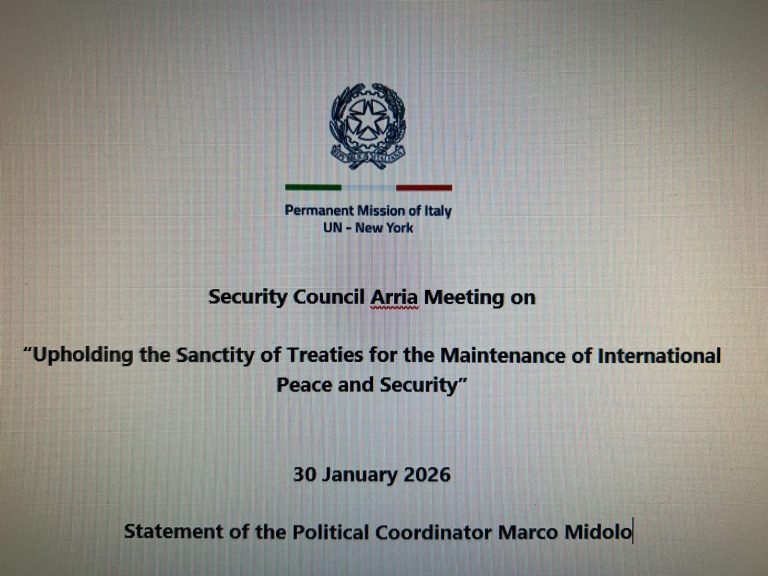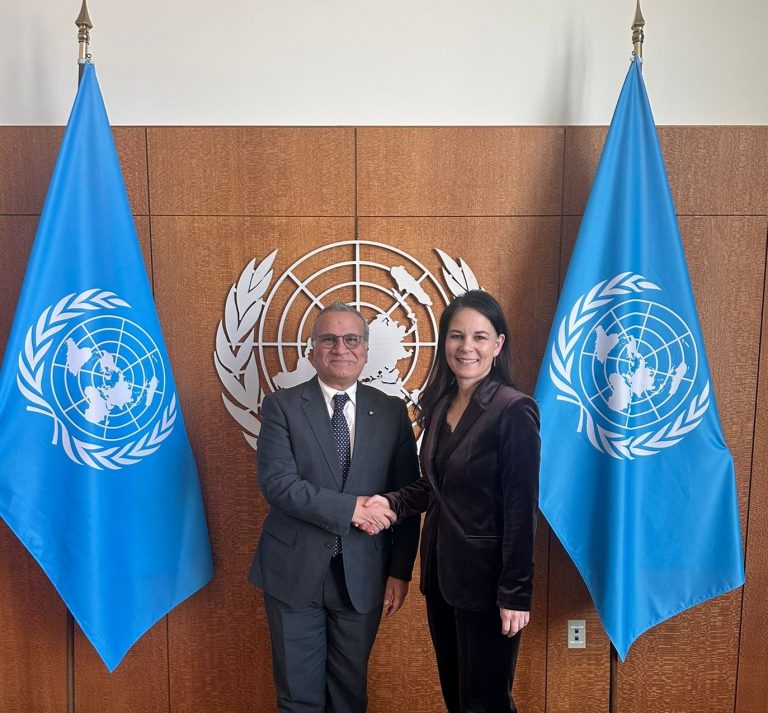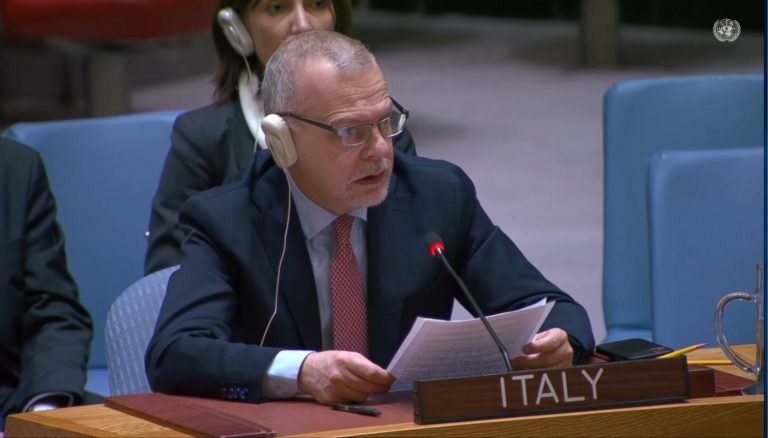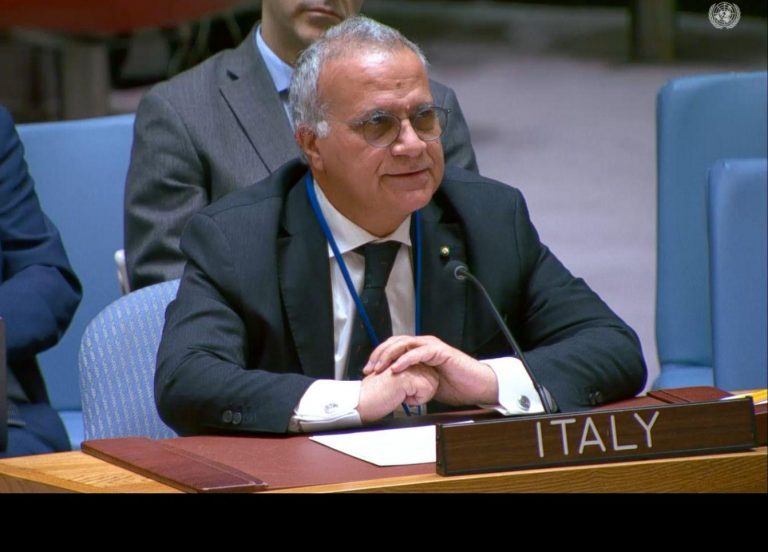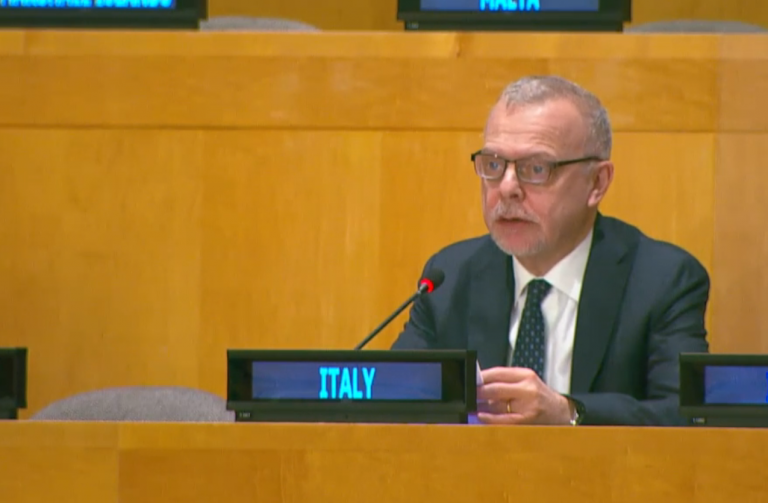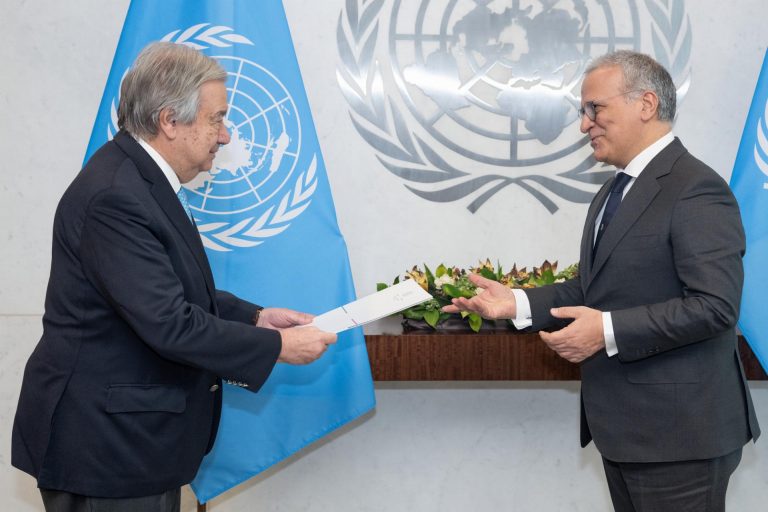Mr Chair,
Since this is the first time the delegation of Italy takes the floor during this year’s session of the Sixth Committee, let me congratulate you and the other members of the Bureau for their election and let me assure you of Italy’s full support in the performance of your important functions.
Italy aligns itself with the statement earlier delivered by the representative of the European Union and by the representative of Colombia on behalf of a group of States and would like to add some additional remarks in a national capacity.
Let me first take this opportunity of discussing the topic of disasters to express our fully solidarity with the peoples and Authorities of Morocco and Libya for the destructive events of last month, which have resulted in deaths, human suffering and damage to physical infrastructure on a large scale. Italy has already offered assistance for both situations and has provided assistance in Libya in the relief efforts. It is ready to continue doing its part in supporting recovery in line with the requests and needs of the affected States.
Mr. Chair,
With regard to the agenda item under discussion, my delegation is taking the floor today to confirm Italy’s support for the recommendation of the International Law Commission to elaborate a convention on the basis of the Draft Articles on the Protection of Persons in the Event of Disaster adopted in 2016.
We welcome the GA’s decision in Resolution 76/119 to engage in more substantive discussions within the framework of a Working Group, with the aim of taking a decision on how to move the process forward in the next session of the Sixth Committee.
My delegation would like to take the opportunity of today’s debate to stress two points.
Mr. Chair,
Seven years have passed since the adoption by the ILC of the draft articles and its relevant recommendation. The issue of disasters – and their impacts on societies and populations – remains of paramount importance for the international community. The GA has recognized precisely that in every resolution adopted on this agenda item, including Resolution 76/119, when noting “with concern the increasing number of disasters in the world, as well as their intensity and impact on affected populations” and that “the subject of the protection of persons in the event of disasters is of major importance in the relations of States”. Those statements must be read in the context of the present grave climate crisis and its dire consequences on societies, especially on vulnerable communities. The 2023 report of the IPCC has highlighted once again the increasing frequency and intensity of extreme weather events, such as heatwaves, droughts, fires and floodings. According the report, compound climate hazards can overwhelm adaptive capacity and substantially increase damage. In terms of deaths, disasters related to extreme weather events disproportionally affect countries with less developed systems of early warning and low coastlines. The recent disaster in the town of Derna is a stark reminder of those realities.
However, the 2021 WMO report on weather-related disasters shows that the brunt is also felt in countries and regions with more developed systems. Three of the costliest weather-related disasters occurred in 2017: Hurricanes Harvey, Maria and Irma accounted for 35% of the total economic losses of the top 10 weather-related disasters around the world from 1970 to 2019. The 2003 and 2010 heatwaves in Europe were responsible for around 80% of the deaths due to weather-related disasters in Europe over the period 1970 to 2019, amounting to over 127,000 deaths. Earlier this year part of northern Italy has been hit by disastrous floods causing severe damage, displacement of several thousand of people and loss of lives.
These numbers refer to weather-related disasters only and yet they show that global multilateral cooperation with regard to disasters’ preparedness and disaster response, including through the development of appropriate legal instruments, is something that requires urgent attention by States.
Mr Chair,
This leads us to our second point today, which is on the role of the law – and international law in particular – in the context of disasters.
The Political declaration for the mid-term review of the Sendai Framework on Disaster Risk Reduction approved on 18 May of this year at the High-Level Meeting of the General Assembly in paragraph 26 calls upon States to “[e]nsur[e] that disaster risk governance is supported by legal and regulatory frameworks, policies and plans at all levels”.
Elaborating a convention on the international cooperation on the protection of persons in the event of disasters would fill an important legal gap. It would be complementary to and in line with the Sendai Framework. It would not be a mere exercise in progressive development of international law detached from State practice and existing international law and without any added value in terms of certainty, predictability and preparedness as compared to soft law arrangements. On the contrary. The current state of the international law on disaster risk reduction and response shows that international cooperation in this field is commonly regulated through international legally binding instruments. Contemporary international law sees an impressive number of bilateral and regional legal instruments (over 150 according to the online database of the Federation of the Red Cross) and some multilateral agreements dealing with certain specific issues concerning the management of disasters. Many of these agreements, especially in the last years, provide for clear and elaborate provisions on disaster risk reduction. These existing agreements reinforce the domestic legislation that has been enacted by many countries. What is missing is a universal legal framework, which should play a complementary and practical function – when regional and bilateral treaties and specialized instruments are not in place with regard to a specific disaster – and which should inspire future bilateral, regional and sectorial agreements, hence facilitating international cooperation, from disaster risk reduction to disaster response.
In conclusion Mr Chair,
Reinforcing international law at times of unprecedented global challenges for humanity is a responsibility of the GA in accordance with Article 13 of the Charter. Once again, we welcome the fact that Resolution 76/119 has established a clear timeline and an outcome-oriented process. We invite all delegations to engage in an open and substantive discussion in the framework of the Working Group that will begin its works tomorrow.
I thank you Mr Chair.







